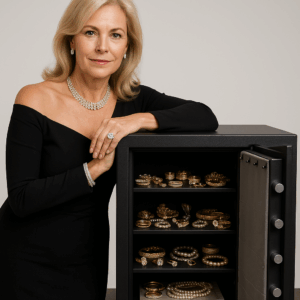
At MSC Safe Company, we know that not all safes are created equal. When you’re investing in protection for your valuables—whether it’s cash, documents, or irreplaceable items—understanding how to measure a safe’s security is essential. That’s where cash ratings (also referred to as insurance ratings) come into play.
What Is a Cash Rating?
A cash rating is a commonly used benchmark in the safe industry. It provides a general indication of how secure a particular safe is, particularly when it comes to protecting cash and other valuables. This rating can help insurers assess the risk involved in covering those contents and guide customers in choosing the right level of protection.
Why Ratings Matter
Walk into a hardware store and you’ll see plenty of safes—but are they truly secure? Many budget models look the part but offer little in actual protection. That’s why industry standards and comparative ratings are so important: they allow consumers to differentiate between genuine security solutions and low-grade imitations.
Historically, insurers played a key role in assigning these ratings based on the amount of cash a safe could reasonably protect. Higher security safes were required for higher insured amounts. Over time, however, insurers moved away from issuing these ratings themselves and began relying on manufacturers and industry standards to guide their policies.
The Challenge in Australia
Unlike in Europe or the United States—where independent testing organizations like Underwriters Laboratories (UL) or ECB-S provide formal certification—Australia lacks a central testing body for safes. As a result, Australian manufacturers assign their own ratings based on construction comparisons and performance benchmarks observed in the market.
While many reputable safe brands maintain consistency and integrity in assigning ratings, some lesser-known models may advertise exaggerated ratings that don’t reflect real-world security. This inconsistency makes it even more critical to purchase from trusted suppliers like MSC Safe Company, where quality and transparency are paramount.
Certified Safes vs. Non-Certified Safes
For peace of mind, look for safes that have undergone independent, international testing. For example, some safes in the market—like those certified by UL in the USA—have met stringent standards for burglary resistance. These certifications often correlate with reliable cash ratings, providing clarity on the level of protection you can expect.
At MSC Safe Company, we offer a carefully curated range of safes that have been assessed for their structural integrity, locking mechanisms, fire resistance, and overall build quality. This ensures you’re getting genuine protection—not just a steel box.
Key Questions to Ask Before You Buy
To make sure you’re investing in the right safe, consider the following:
-
Is it equipped with a reliable, branded locking system?
-
Is the supplier a dedicated safe specialist or a general retailer?
-
Are the installers police-licensed and professionally trained?
At MSC Safe Company, we proudly meet all these criteria.
The Role of “Unsupported” Cash Ratings
You may come across the term “unsupported rating”—this refers to the safe’s cash rating assuming it’s the only security measure in place. However, if your property includes added layers of security like monitored alarms, security screens, or CCTV systems, your insurance provider may recognize a higher effective rating. In other words, the safer the environment, the more effective your safe becomes.
Final Thoughts
Because there’s no one-size-fits-all formula for determining cash ratings in Australia, the best approach is to speak with a safe specialist. At MSC Safe Company, we’re here to help you navigate your options and ensure your valuables are protected to the highest standard possible.
Need expert advice? Contact MSC Safe Company on (08) 93441962 today—we’ll guide you toward the perfect safe for your security needs.
